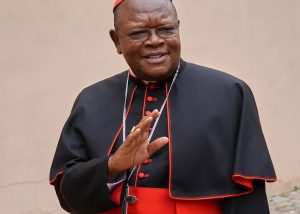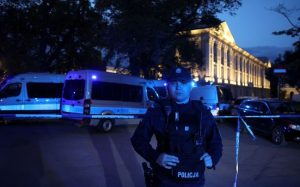Mozambique opens new parliament amid strikes and protests
3 min readMozambique’s newly elected parliament was inaugurated on Monday in the capital city of Maputo amidst widespread strikes and protests. The event, held under heavy security, took place as the city descended into chaos, with opposition-led demonstrations and a general strike paralyzing daily activities. The unrest was triggered by allegations of electoral fraud following the October 9 elections, which opposition leaders, particularly Venancio Mondlane, continue to challenge. Mondlane, leader of one of the main opposition parties, called for the strike to protest what he described as irregularities in the election process.
The inauguration ceremony saw around 30 seats left vacant as two prominent opposition parties, Renamo and MDM, chose to boycott the proceedings. Both parties are demanding a recount of the election results, which they argue were manipulated. Despite the boycott, the Podemos party, which supports the ruling government, attended the swearing-in. Ivandro Massingue, a member of the Podemos party, accused the boycotting opposition parties of “cowardice” for refusing to take part in the new parliament’s formation.
In the streets of Maputo, tensions ran high as protests erupted in various parts of the city. Demonstrators set up barricades and burned tires, calling for political change. In response, police used tear gas to disperse the crowds and prevent the situation from escalating. One protester, Osvaldo, expressed frustration with the political system, saying, “We are tired of manipulation. Independence begins today.” As protests continued, many businesses in the area remained shut down due to fears of looting, although some local shopkeepers, like Selzio, voiced support for the strike, acknowledging that “change requires sacrifice.”
The general strike and protests reflect the deep dissatisfaction among a significant portion of the population with the government and its handling of the country’s problems. Despite the calls for political reform and greater transparency, citizens remain skeptical about the government’s intentions and its ability to address the growing issues facing Mozambique. Many feel that the government has ignored the worsening conditions in the country, including economic challenges and rising inequality.
The incoming President of Mozambique, Daniel Chapo, addressed the nation after the parliamentary inauguration, calling for national unity and reconciliation. He stressed the importance of coming together to build a better future for all Mozambicans, despite the political divisions that have become increasingly pronounced. His message was echoed by the newly appointed Speaker of the Parliament, Margarida Talapa, who pledged to make the legislature “open to dialogue” and willing to engage with all political groups, including those in opposition. However, despite these optimistic statements, the atmosphere in the country remains tense, with many questioning whether the government is genuinely committed to meaningful reform.
The situation in Mozambique underscores the broader challenges facing the country as it grapples with political instability, economic difficulties, and social unrest. The protests and strikes are a stark reminder of the discontent that exists within the population, particularly among those who feel excluded from the political process. While the government has promised change and dialogue, it remains to be seen whether these pledges will lead to tangible improvements in the lives of ordinary citizens.
In the face of these challenges, Mozambique stands at a crossroads. The nation’s political future depends on how the government responds to the demands for transparency, accountability, and greater inclusivity. As the new parliament begins its work, the eyes of the nation are watching closely, waiting to see if the government can bridge the gap between its promises and the reality faced by the people on the ground. With opposition parties refusing to engage and protests continuing, the road ahead for Mozambique looks uncertain, and the call for political change will likely remain a powerful force in the coming months.






